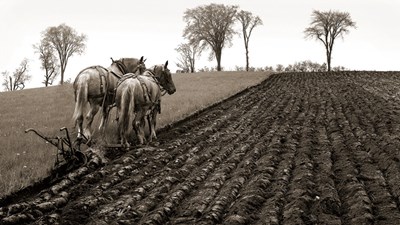
In 1900, Vermont was mostly a patchwork of self-sufficient farmsteads. Tensions with the “developing world” arose early, as modern ideas and technology (often transported with Flatlanders) displaced the native agrarianism. This simmering, century-old tension is strained by recent gun legislation; particularly S.55.
Kentuckian Wendell Berry has lamented the exploitation of his native place: his observations apply equally to Vermont. In “The Regional Motive,” Mr. Berry defines two types of destructive “regionalism.” The first, “based upon pride, which behaves like nationalism,” is exhibited by “Vermonters” who invoke their birthright as a badge of entitlement. The second destructive regionalism, Mr. Berry asserts, is “based upon condescension, which specializes in the quaint and the eccentric and the picturesque, and which behaves in general like an exploitive industry.” Both varieties depend on a “false mythology that tends to generalize and stereotype the life of a region.” It is this “regionalism of condescension” that is here addressed, so that you, dear reader, may determine whether you are a Flatlander.
Surely Vermont’s character is reflected in those quaint sugar houses, eccentric barns and picturesque hillsides (to employ Wendell’s adjectives), but often those images are employed by a modern, profit-driven market to promote sales at the expense of that underlying culture. “Flatlander” is localspeak not for a birthplace but for the exploitive mindset of the modern industrialized consumer. Wendell Berry wrote (in 1972):
At present our society is almost entirely nomadic, …and it is moving about on the face of this continent with a mindless destructiveness, of substance and of meaning and of value, that makes Sherman’s march to the sea look like a prank…. Without a complex knowledge of one’s place, and without the faithfulness to one’s place on which such knowledge depends, it is inevitable that the place will be used carelessly, and eventually destroyed.
Many perceive that this nomadic (Flatlander) culture has influenced Vermont’s resources and culture to be “used carelessly” and that both have been very nearly destroyed.
In another essay, Mr. Berry chronicles the historical wisdom which nurtures agrarian life, including especially the views of Thomas Jefferson:
As Jefferson saw it, two disciplines were indispensible to democracy: …education [and] land, the widespread possession of which would assure stable communities, a tangible connection to the country, and a permanent interest in its welfare…. In the loss of that vision…we have created a society characterized by degrading urban poverty and an equally degrading affluence – a society of undisciplined abundance, which is to say a society of waste.
These two poles – urbanization/consumerism versus self-reliance/land stewardship – appear repeatedly in Mr. Berry’s writings (and in Henry David Thoreau’s). This is precisely the friction underlying Vermont’s Flatlander/Woodchuck division; and within each of us as individuals.
My personal goal is to be less of a Flatlander next year than I am now. I leave you, who have kindly read this far, to reflect on where you perch upon this spectrum. I am hopeful that people will investigate Wendell Berry’s essays, as they are extremely relevant to our times, and to our Place. How quickly we see in his words the conflict between 1900 Vermont and the place in which we now “reside”:
A person dependent on somebody else for everything from potatoes to opinions may declare that he is a free man, and his government may issue a certificate granting him his freedom, but he will not be free. He is that variety of specialist known as a consumer, which means that he is the abject dependent of producers. How can he be free who can do nothing for himself? What is the First Amendment to him whose mouth is stuck to the tit of the “affluent society”? Men are free precisely to the extent that they are equal to their own needs. The most able are the most free.
Sounds like a Vermonter...
How prescient are this man’s words for us – regardless of where we were born:
With the urbanization of the country so nearly complete, it may seem futile to the point of madness to pursue an ethic and a way of life based upon devotion to a place and devotion to the land. And yet I do pursue such an ethic and such a way of life, for I believe they hold the only possibility, not just for a decent life, but for survival.
Mr. Berry passionately advocates that this “ethic” is the “only” possibility for survival because it is nurturing and sustainable: whereas our current nomadic consumptiveness he dubbed “an apocalypse of our own making – a man-made terror” and “the apocalypse of technology.” (“A Secular Pilgrimage,” 1970)
Nearly fifty years after these essays were penned, it is increasingly evident that the wealth disparity, shrinking real wages, declining rates of home ownership (and life expectancy), and exploding government budgets that smother our State are ills of this looming apocalypse which has seeped into our lovely Green Mountains like a black mold, making us more dependent and fearful; less free. The solution is not increased doses of the carcinogenic medicines of Progress: it is a reversion to the tried (if trying) ways of self-reliance and frugal gratitude. The Old Vermont ways...
Originally published with The Newport Daily Express, 5/18/2018